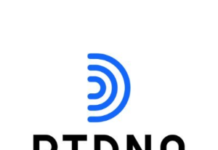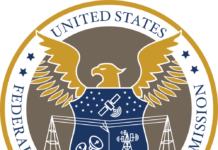
After lying relatively dormant for the past two years, the FCC appears to be bringing the FM geo-targeting debate back to the regulatory forefront. Commissioners Carr and Starks released a statement saying Chairwoman Jessica Rosenworcel is circulating a Notice of Proposed Rulemaking that would allow FM broadcasters to air geo-targeted content for a limited time during their broadcast hour.
The Commissioners highlighted their approval, saying that geo-targeting could significantly benefit small businesses and community organizations by allowing these entities to reach their target audiences more effectively and cost-efficiently.
In 2021, the FCC submitted a similar NPRM that was highly opposed by many broadcast groups and organizations, including the National Association of Broadcasters. The NAB did not mince words on the debate, previously stating that FM geo-targeting would drive advertising rates and revenue down further and hurt minority and women-owned stations the most.
US Black Chambers disagrees, pushing for the ability to program information and news in alternative languages by neighborhood in diverse metropolitan areas.
GeoBroadcast Solutions, makers of the ZoneCasting geo-broadcast technology, has also long been at odds with the NAB over the issue. When ZoneCasting was introduced in India, it led the government to require that smartphone manufacturers activate the FM chips built into every device – a point of contention between radio operators and Big Tech companies.
Proponents of allowing hyper-localized content on FM radio say the technology is no different than what television is allowed with NextGenTV.
Commissioners Carr and Starks said, “We’d like to extend our thanks to the Chairwoman for moving this proceeding to an order so that broadcasters can implement this technology, to the extent they choose to do so. Without a doubt, geo-targeting presents a new way of thinking about FM. If radio entrepreneurs want to test new business models and deploy new technologies, the FCC’s rules shouldn’t stand in the way.”
National Association of Black Owned Broadcasters President Jim Winston commented, “Radio broadcasting has been in dire need of revitalization, and with the FCC’s foresighted decision, that time is now. Geo-targeting technology is not just about modernization; it’s about survival and growth. It’s a tool that can rejuvenate a declining sector while also propelling forward the FCC’s vision of promoting minority broadcasting. Our communities and businesses stand to gain immensely from this development, and we applaud the FCC for their timely and critical action.”
Initial reactions are coming in from across the industry. International Black Broadcasters Association CEO Rob Neal said, “In November of 2022, the International Black Broadcasters Association (IBBA) urged the FCC to authorize FM radio broadcasters to geotarget their audiences. The IBBA believes geotargeting technology can revitalize a declining radio sector, while also advancing the FCC’s vision of promoting minority broadcasting. I am so very pleased to see that Commissioners Starks and Carr announced that the FCC will authorize the technology. I commend them, and Chairman Rosenworcel, for this important initiative. The time has come!”
While the official NPRM is currently unfiled, Radio Ink will follow this story as it develops.









A respondent asks: AM Stereo. FM Quad. AM IBOC. Next Radio. Wonder which column this technology will fall into?
Those were just tech innovations. “Geotargeting” directly produces revenue. We’ll be early adopters.
But we don’t need a patented (costs us extra money) solution. This is simply an independently programmed booster. We’ve known how to do this for forty years! Approve geotargeting within other existing booster Rules and let the market decide on the technical parameters.
We’ve learned over the past decades that several things may (or may not) happen. Stations will (or will not) expend the money needed for boosters, licensing for Geo-Targeting. Stations will (or will not) expend the money needed for a additional production needed for individual boosters. Will (or will not) expend the money needed for additional audio sources. Will (or will not) do their due diligence in making sure that targeted content goes to the right place(s). Will (or will not) correctly price the new revenue source, and correctly readjust the “main” cost for the signal that will be reduced when a station’s signal is split. Will (or will not) have responsible staff to monitor the Geo-Targeting signals for quality and accuracy. We know how quirky a station’s online stream can get – and we can probably expect the same for Geo-Casting-at least for awhile. (Many stations’ streaming signals are still fraught with technical errors.) Finally, in the age of consolidation, RIF and IBOC signal reduction, how many stations will have the capital needed to get this technology off the ground ? No one loves to see new technology more than me, but there are many examples of “new” that are sitting in the basements of stations everywhere. AM Stereo. FM Quad. AM IBOC. Next Radio. Wonder which column this technology will fall into?